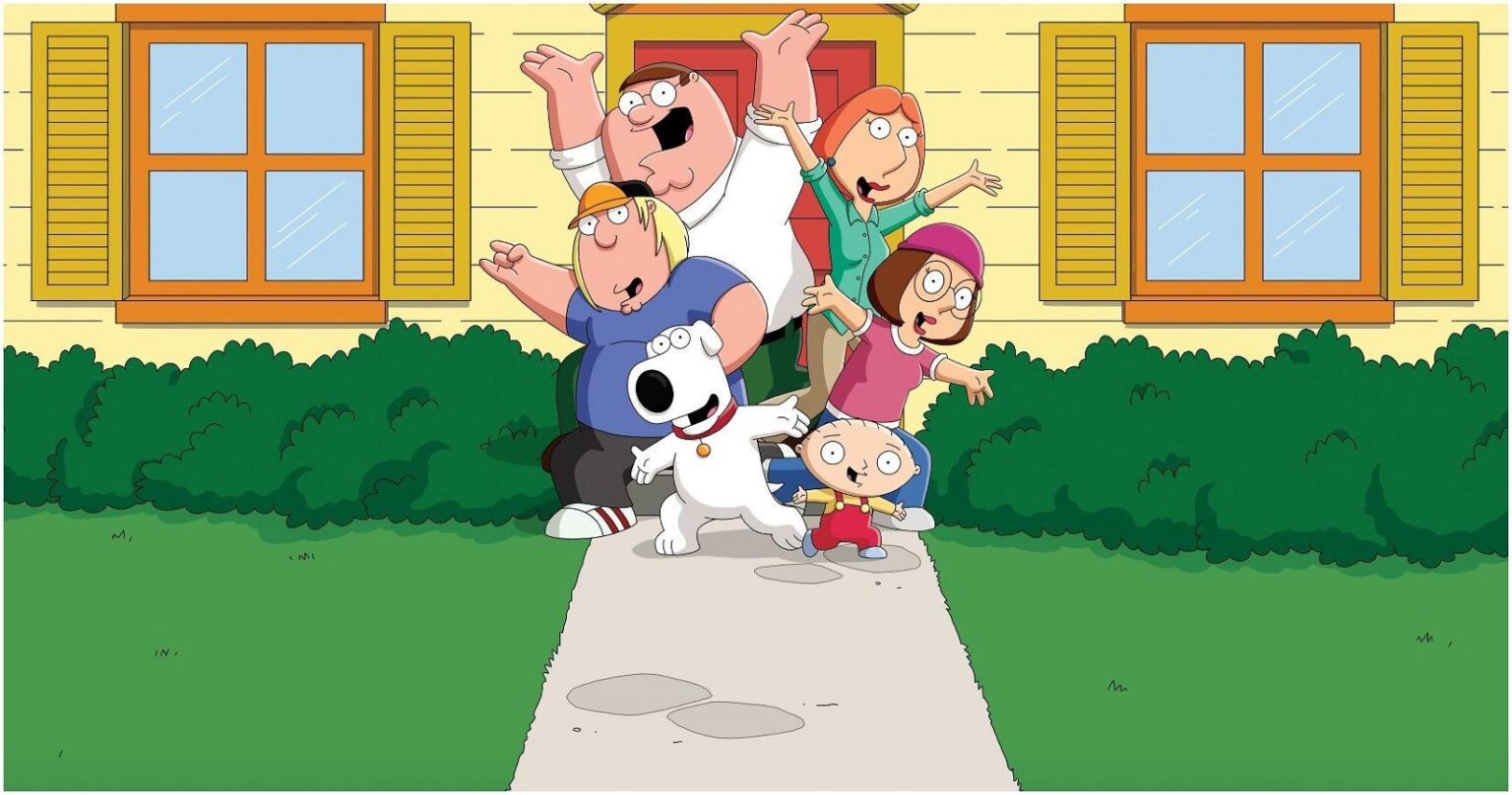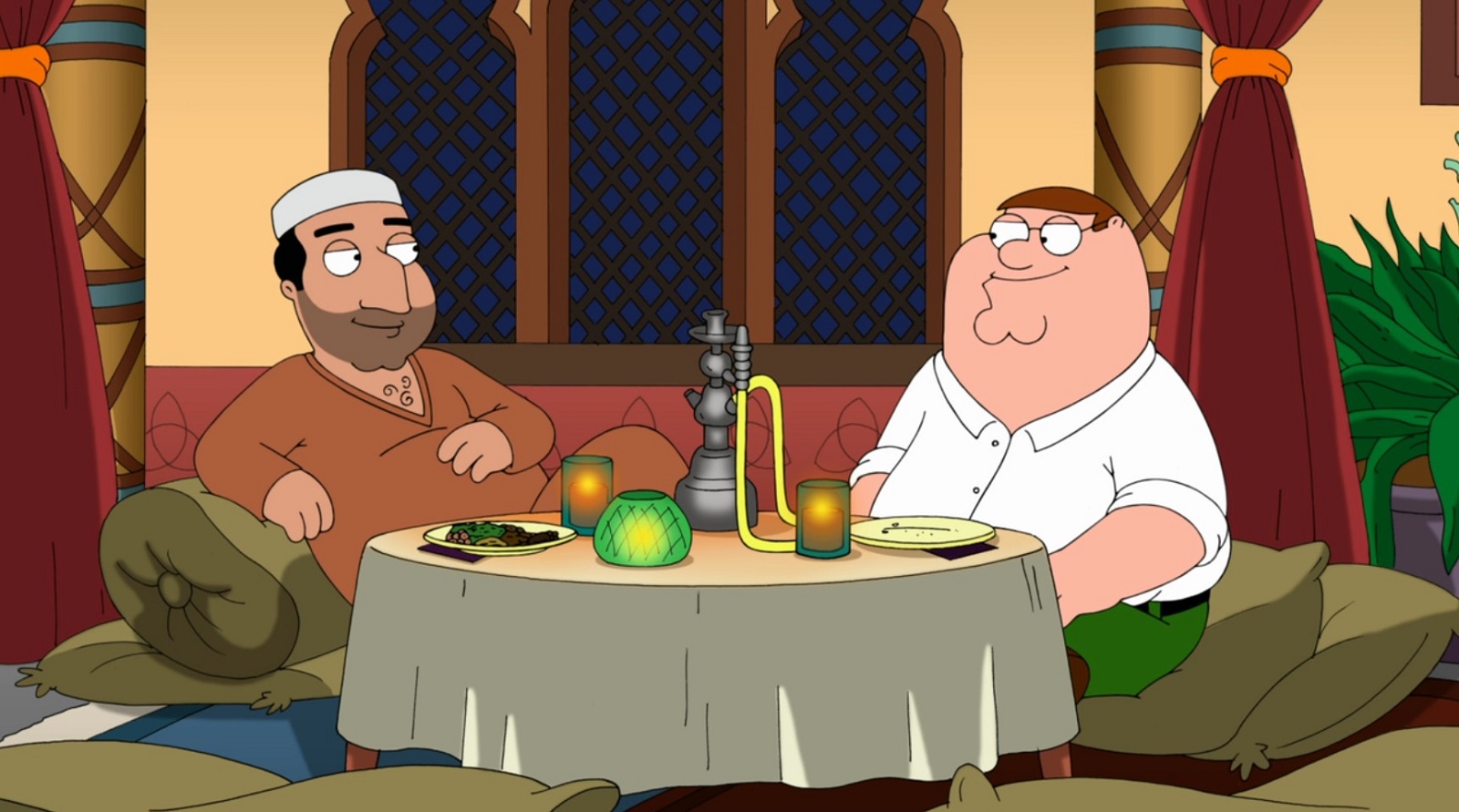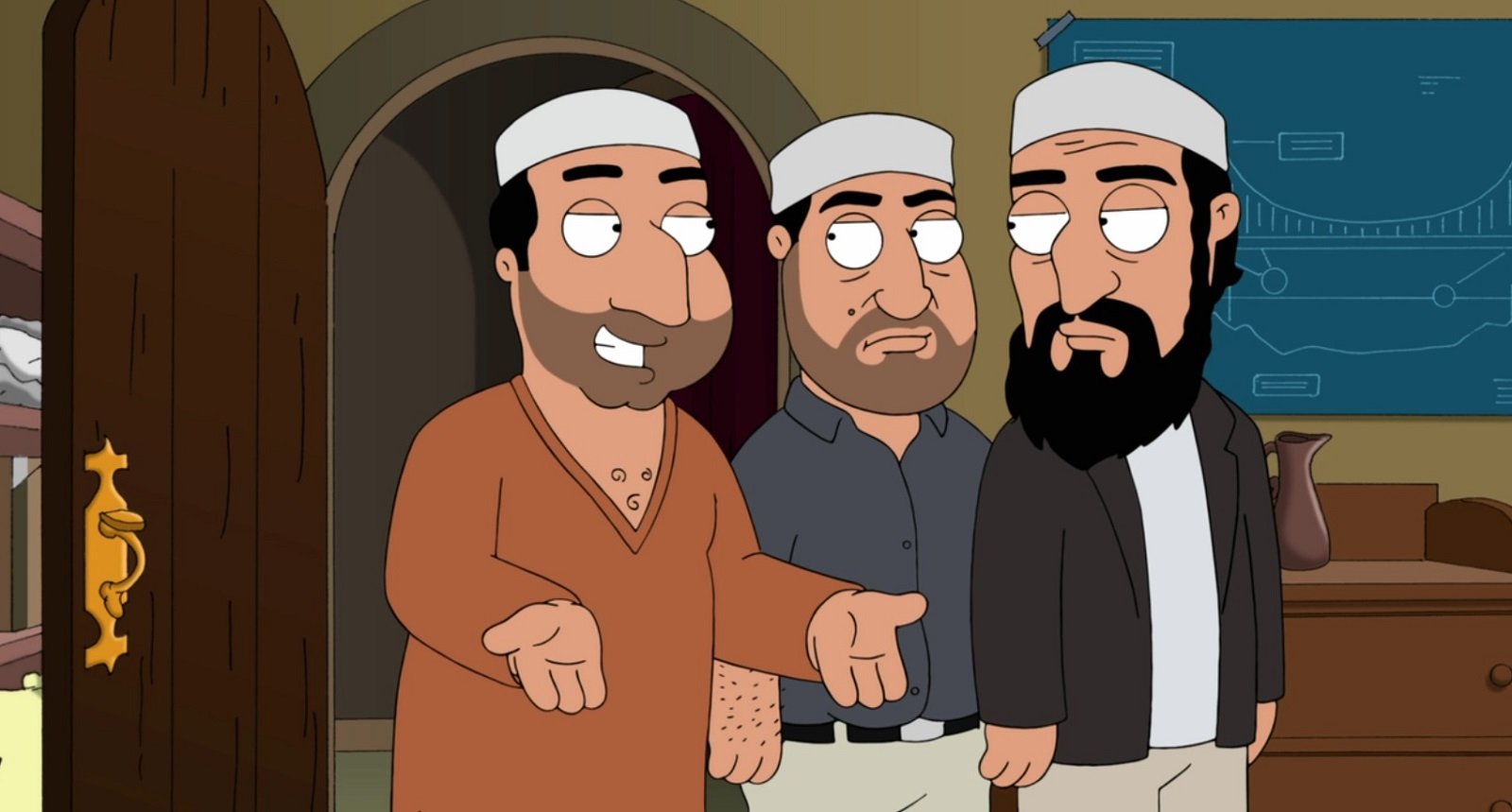
Is ‘Family Guy’ funny or offensive? Unpack these controversial episodes
Comedies always spark controversy, but few have lit as many fires as Seth McFarlane’s animated sitcom Family Guy. The Emmy Award-winning show has a knack for blurring the line between offensive & hilarious. Family Guy episodes have been pushing boundaries and making viewers uncomfortable since they first began airing on Fox in 1999.
People endlessly debate whether or not the show as a whole is redeemable. Episode by episode, it goes both ways. Here we’ll unpack some Family Guy episodes that won awards, ruffled feathers, and even got themselves pulled from the air.

“When You Wish Upon a Weinstein”
This Family Guy episode should have been the finale to the show’s third season. Executives at Fox, however, worried the episode would be received as anti-Semitic. It finally made it to TV three years later in 2003 on Fox-affiliated Adult Swim.
The episode centers around Peter Griffin becoming convinced that Judaism makes people smart and financially successful. He sings a musical number about getting a new accountant – “I Need a Jew” – and tries to convince his son Chris to convert.

Contrary to Fox’s concerns, the episode didn’t infuriate Jewish people everywhere. It garnered a lawsuit, however, from the Bourne Company Music Publishers. They felt the show’s parody of “When You Wish Upon a Star” was so offensive it hurt the value of their song. Family Guy won the suit two years later.
For the most part this episode escaped being labeled offensive. Peter’s stereotypical beliefs about Judaism were the real target of the episode’s jokes, and plenty of laughs were had at his expense.

“Turban Cowboy”
Family Guy handled an episode about Islam with significantly less grace. “Turban Cowboy” aired in 2013 during the show’s eleventh season. Fox had no qualms about this episode, but many viewers did.
As with our last example, this episode focuses on Peter discovering a new religion. Peter becomes friends with an Islamic man named Mahmoud, and as the two learn more about each other, Peter considers converting to Islam.

Eventually, Peter realizes that Mahmoud is a terrorist. Peter accidentally becomes involved in Mahmoud’s plot to blow up a local bridge, but by the episode’s end the terrorist is in handcuffs.
Fans & critics of the show were equally appalled by “Turban Cowboy”. Its offensive treatment of Arabs & Islam was compared to earlier Family Guy episodes like “When You Wish Upon a Weinstein”. The difference between the two is the direction of the comedy. This episode mocks the subjects of the stereotype, rather than the person who believes the stereotype.

“Partial Terms of Endearment”
The previous two Family Guy episodes generated controversy. This episode courted it. “Partial Terms of Endearment” is the last episode of Family Guy’s eighth season, but Fox banned the episode from airing and asked Adult Swim to do the same. This is the second episode to get a “No” from Fox, but the first to get an original airing outside the U.S. on BBC Three.
What topic is too controversial for U.S. television? Abortion. In the episode Lois agrees to be a surrogate mother for an old friend and the friend’s husband. Peter is unhappy with the situation and tries to force Lois to have a miscarriage.

When the parents-to-be die in a car accident, Lois is left hanging. She spends the rest of the episode deciding whether or not to have an abortion, ultimately going through with it.
Despite being one of the most talked about Family Guy episodes in the show’s history, the episode didn’t garner much outrage when most viewers finally saw it on the eighth season’s DVD release. By so openly and outrageously pursuing controversy, the episode preemptively turned away those who would be most offended by it.

“Screams of Silence: The Story of Brenda Q”
This episode is the inverse of “Partial Terms of Endearment”. The episode aired on October 30th, 2011 as a Halloween special. In a unique move for Family Guy, this episode mostly eschews comedy for a serious tone. That choice may have been the episode’s downfall, considering comedy is Family Guy’s strong suit.
“Screams of Silence” introduces the sister of longtime character Quagmire. The focus is on her relationship with her boyfriend Jeff Fecalman. Jeff is violent & abusive, but Brenda constantly makes excuses for his treatment of her. Eventually, Quagmire, Peter, and Joe conspire to kill Jeff to free Brenda from her situation.

The episode was attacked as being a poor attempt at talking about domestic violence. Critics railed on Brenda’s characterization as stupid, weak, and in need of saving. The episode reinforces the stereotype that women in abusive relationships are just too dumb to leave.
“Screams of Silence” demonstrates a starling lack of understanding of its own subject matter. The attempt at a serious tone is undercut by the show’s history, and the lack of humor deprives Family Guy of its main selling point.

“Hot Shots”
Thanks to all the other controversial Family Guy episodes, “Hot Shots” flew under the radar. The episode, which aired in 2016, offered a prescient view of the anti-vax movement.
This episode follows Lois as she struggles with whether or not to vaccinate her son Stewie. After doing research online, Lois decides that she is vehemently against vaccines and even hosts an anti-vaccine rally. After Stewie’s entire class comes down with measles, Lois wants to vaccinate her son, but all the vaccines have been destroyed.

By the end of the episode, our main characters have been safely vaccinated while 150 other townspeople have died. Despite the body count, this episode didn’t make waves when it first aired.
In the post-pandemic world, this episode comes across very differently. With the debate around vaccines taking center stage in the world today, will “Hot Shots” join the ranks of other controversial Family Guy episodes? We’ll soon see.



